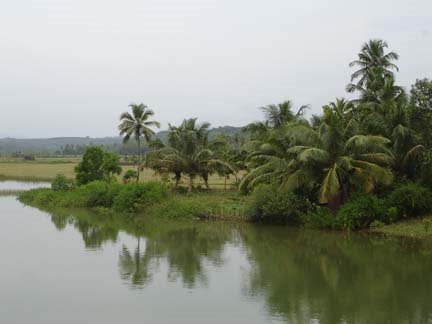Many of us are still reluctant to believe that several ancient African tribes migrated to India and especially to Tulunadu and other parts of southern India in the dark, unrecorded, undocumented antiquity.
Bambrana
Bambrana is a village in coastal Kasargodu district of Kerala. It is well known that Kasargodu and Dakshina Kannada are related by similar evolution, culture, tribes, language and traditions.
Let us analyse the meaning of the word Bambrāna.
In the word ‘BambrāNa’ (Bambara+aNa), the suffix ‘–aNa’ (or aNe) is an ancient spatial denoter (for example village names: Perne, Marne, Perana-manja etc) as explained in many earlier posts herein.
Bambara
Bambara is an ancient West African tribe, belonging to Mande group, hailing from Mali, Senegal and adjoining regions. Toponymic evidences of existence of ancient mande tribes in south India [exemplied by place/river names such as Mande-kolu (Sullia) , Mandagadde (Shimoga), Mandya, Mandovi (River) etc ] have been discussed in earlier posts.Bambara are also known as Bamana or Banmana and their language is known as ‘Bambara’ or ‘Bamanankan’, wherein ‘–kan’ means a language.
Ancient migrations
The place name Bambrana in Kasargodu district is an evidence for the existence of Bambara tribes in the West Coast in the antiquity. Probably during desertification of parts of Africa and consequent formation of Sahara deserts, some of these African tribes migrated to greener pastures like West Coast. It would be interesting to look for further evidences of ancient migration and settlements of African tribes in the West Coast of India. There may be remnant traces of Bambara words in our languages as well as genes in our communities.
The rural toy of ‘spinning tops’ used for playing by children of southern India are also known as ‘bambaram’, probably indicating the originators of this game concept.
®


